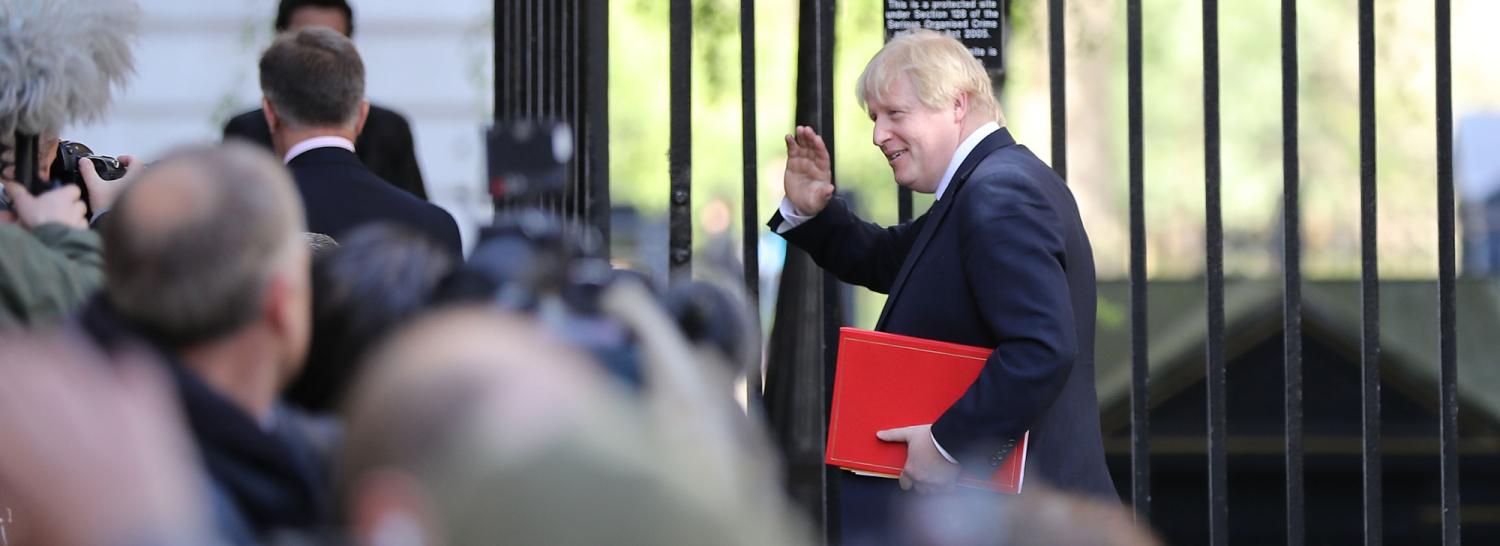When Theresa May appointed Boris Johnson Foreign Secretary in July 2016 it was viewed by the more charitable as unexpected proof that she had a sense of humour. To most it appeared preposterous.
Johnson had spent eight years as Mayor of London; during his rule, and before it, he had been a newspaper columnist noted for his buffoonish, Wodehousian idiom. He had not been famed for his attention to detail or to duty during his mayoralty, a point reinforced by his decision at one stage to appoint seven deputy mayors.
He had a baroque private life, with stories of his womanizing frequent fodder for the tabloid press, and he had twice been sacked for lying – first by The Times newspaper, for inventing quotes from an eminent Oxford don who happened to be his godfather, the second time from a front-bench spokesmanship by Michael Howard, the then leader of the Conservative party, for denying he had had an extra-marital affair. He was not the natural candidate to be Her Majesty's Principal Secretary of State for Foreign and Commonwealth Affairs.
Mrs May appointed him for several reasons. First, he had been a figurehead in the campaign for Britain to leave the EU, whereas Mrs May had been on the losing side. Second, she judged he had a substantial constituency in the Conservative party that required representation at the highest level. Third – and this is a supposition by Johnson's critics – she was giving him sufficient rope with which to hang himself, because she knew he was a liability.
Nearly 15 months later that last point seems to have been borne out. Johnson has made a series of gaffes that have reduced his standing among his fellow MPs and, worse for him, among the public and the rank-and-file Conservative party members on whose votes he would rely in a leadership contest. This diminution in his standing, and what is perceived as his loss of supposed 'ownership' of the Brexit question, are thought to be what drove him, a week ago, to write a 4200-word essay (paywalled) for another of his former newspapers, the Daily Telegraph, on the need for Britain to get on with leaving the EU without further ado, and without seeking to appease its European partners. In doing so he brought himself down on one side of a division in his party, against those who wanted a long period of transition.
His timing was viewed in Downing Street as deeply unhelpful: Mrs May herself was to make the definitive speech on the Government's plans for Brexit six days later in Florence. Fevered speculation ensued. It was said she would re-write her speech; then it was said it would change nothing. It was said Johnson would resign; then it was said he would not. The speech was made; it included the suggestion of a two-year transition period and the payment of £18 billion or so over those two years to fulfil Britain's obligations in respect of the EU budget.
Hard-line Brexiteers, in whose number Johnson supposedly included himself, professed their distress at what they considered to be her lack of leadership in discharging the democratic will of the British people. Johnson, though, immediately expressed his voluble agreement with what the Prime Minister had said, even though what she said appeared to contradict much of what Johnson had written the previous weekend. If there had been a showdown, it appeared that Johnson had come out the worse.
After his newspaper essay, it was widely commented that such a freelance act in almost any other administration in recent British history, especially at such a moment of political sensitivity, would have led to the perpetrator's immediate sacking. But Mrs May, still wounded after her failure to win the June general election outright, lacked the strength even to sack someone whose own popularity had seriously declined. But of course, she would not have been sacking someone who was personally unpopular; she would be sacking someone who had, at a time when his popularity had sunk, identified himself again with a cause dear to the heart of considerable numbers of his colleagues, and which had the endorsement of a majority of the British people.
Yet Johnson appears even further weakened. The beleaguered Prime Minister has spoken, and has not entirely followed his script. He has not resigned but, has instead fallen into line and saluted, calling her speech 'positive, optimistic and dynamic'. She rejected the idea that Britain would emulate Norway and join the European Economic Area, which would mean it would still be subject to European controls that the British people have voted to reject. So in that respect Johnson was happy. But her suggestion of a transition period, and the offer of money, were not what he wanted.
With sceptics saying that what Mrs May was proposing was leaving the EU in name only, the battle might not be over yet. Her continued survival in office remains tenuous: she expects endorsement at her party's conference in just over a week's time, but the road beyond that is largely uncharted and her parliamentary majority non-existent. But Johnson is regarded as having dug his own grave, having lost the trust and confidence of too many people who matter. If Mrs May feels she has the courage to have a reshuffle, Johnson may not be at the Foreign Office for much longer.
